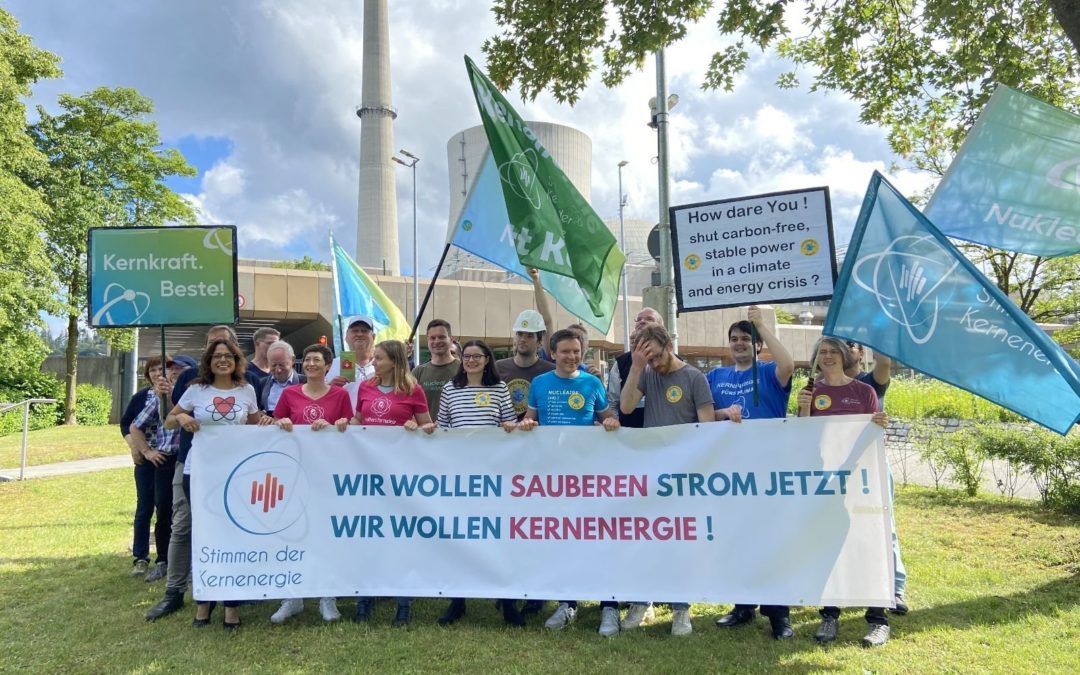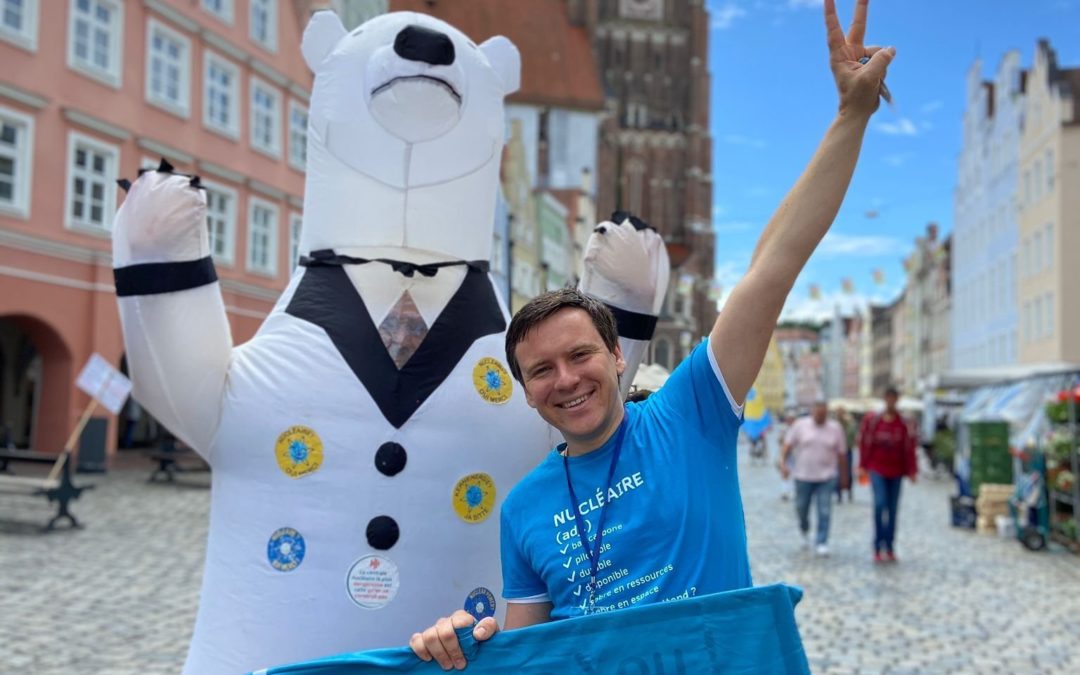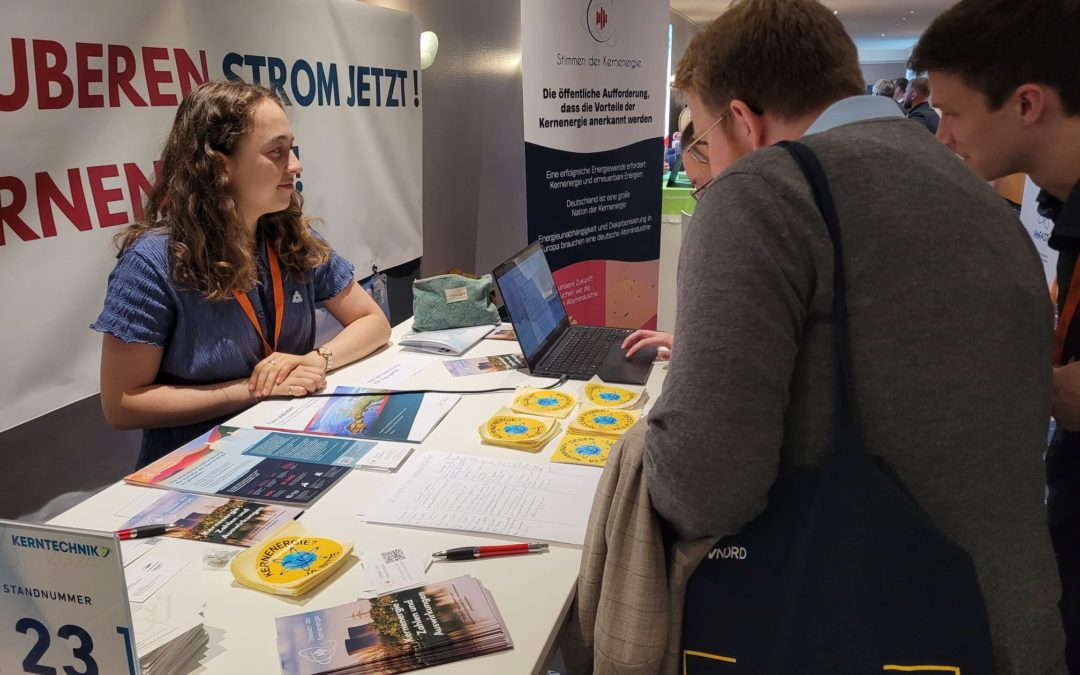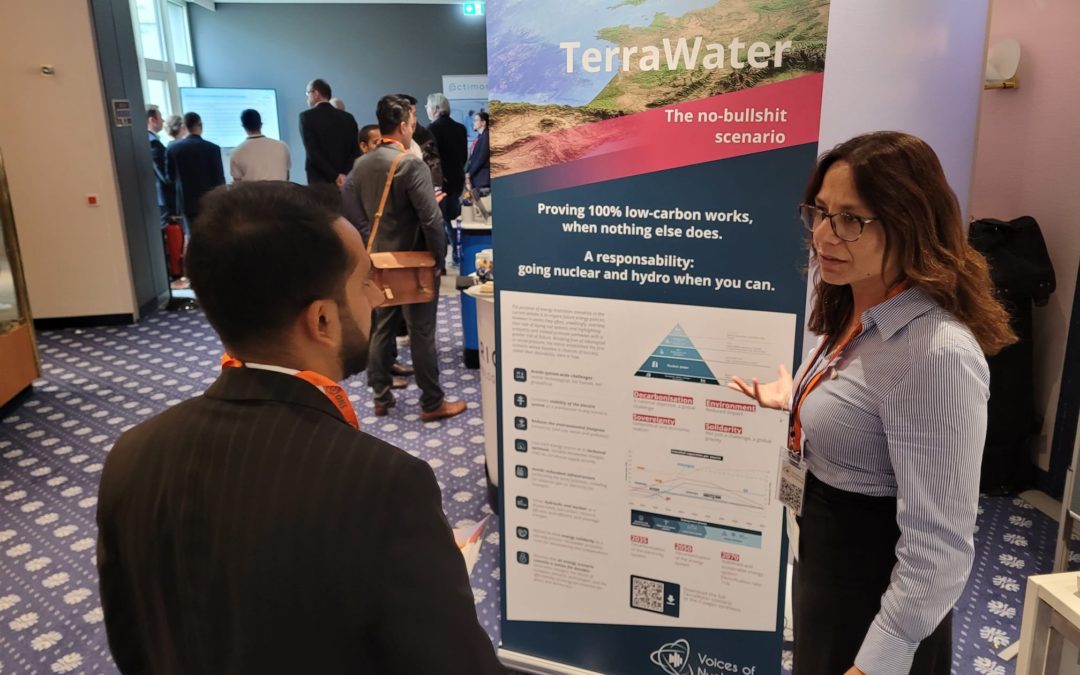In Germany 🇩🇪, the Voices are rising!
We are witnessing a far greater determination than we had expected from Germany’s nuclear industry players, who were yesterday promised a somewhat shameful demise, to raise their heads and reclaim their position within the global nuclear family.
With this determination comes the hope of a future in which atoms will replace coal as the basis of the energy system.
With a growing number of members based in Germany, Voices of Nuclear have launched their German-language collective: Stimmen der Kernenergie!
French and German members of the Voices have been working together in recent weeks, in Landshut and opposite the Isar 2 power station (Bavaria), as well as at the Kerntechnik nuclear industry conference in Leipzig from 11 to 13 June 2024.
These meetings provided an opportunity to share views on energy and, above all, to restore hope and pride to those involved in a sector of excellence. It was also an opportunity to note that public opinion is far from reflecting the dogmatism of decisions taken under pressure from anti-nuclear movements – helped by the gas lobby.
Present alongside other organisations, notably Nuklearia, the Stimmen embody the values of the Voices in Germany and campaign for the integration of the German nuclear industry into European projects, in order to improve the chances of success of the trajectory towards net zero by 2050.
The Stimmen der Kernenergie are here to turn the tide and say goodbye to fossil fuels in Europe!
With this in mind, Myrto Tripathi, President of Voices of Nuclear, has published an article in french daily economic newspaper Les Echos, which appeared on newsstands on 17 June:
Europe’s nuclear sector is awaiting Germany
“Let’s be the first continent to be decarbonised by 2050, while preserving its competitiveness and prosperity!
This was the determined call made by Thierry Breton, European Commissioner for the Internal Market, at the 1st General Assembly of the EU SMR Alliance on 29 May.
This assembly, whose existence is to be welcomed, is an industrial alliance for the benefit of a new promise: that of small modular nuclear reactors. 300 participants, virtually the entire European nuclear ecosystem, gathered in Brussels to rebuild an industry that 30 years of dogmatic and institutionalised anti-nuclearism almost killed.
Big or small, without nuclear reactors Europe will continue to rely on fossil fuels, which wind and solar power can only supplement because of their intrinsic limitations. Without a European nuclear industry, Europe will be entirely dependent on the United States, Russia and China.
Fortunately, there is no shortage of nuclear projects on the continent. Everyone is delighted with the renewed momentum.
But all of them also recognise that they are heavily impacted by cross-cutting issues that will not disappear simply as a result of the renewed enthusiasm of governments, and therefore of the markets, at the tail end of public opinion.
These challenges include an industrial fabric that is not on the same scale, fragmented and not configured for the task ahead; an inadequate training offer, with a growing number of applicants but far from the needs; funding that is still timid and not yet educated in the field; a fragile public opinion; decision-making processes that are subject to a predominantly hostile civil society; and a restrictive regulatory framework of which there are as many versions as there are Member States.
Resolving these difficulties is an imperative, without which Europe will not be decarbonised, either in 2050 or later, either prosperously or competitively.
Nuclear Europe needs all the assets at its disposal.
And yet. In this assembly, as on the map, there is a black hole at its centre that nobody is talking about. This is the trump card that could change everything, but which is skirted by conversations, strategic plans and ambitious but precarious projections when it comes to the Union’s energy future. This asset that we cannot (today) count on is a major one: it is Germany.
Germany, with 30% of its electricity from nuclear sources in 2011, its 17 reactors recently shut down, its nuclear cycle facilities, its research programmes, a competent and operational safety authority and, above all, its engineers, students and researchers.
Germany. Its industrial strike power, which is being exhausted under the yoke of the Energiewende and is relocating; its population, whose priority is no longer to get out of nuclear power, despite the lies it has been fed, so tangible are the consequences for its standard of living and quality of life; its ultra-central geographical location, connected to everyone, a heavyweight on the electricity grid, and a black angel of European energy policy choices.
Germany, the only ‘other’ designer of nuclear power stations, the country that should have been France’s competitor as well as its partner. The largest country in Europe in terms of population, GDP, contribution to the EU budget, number of members of parliament… and pollution.
It is this Germany that we need to go after. A country where the majority of the population was in favour of extending the life of nuclear power stations, where the economic fabric is suffering cruelly from the price and instability of energy, and where the political landscape is now divided on the subject.
Germany can change, just as France recently did, bearing the same stigma.
We will not succeed in decarbonising Europe, giving it energy independence, and keeping it prosperous, without a Germany that has regained its place among the world’s nuclear leaders.





